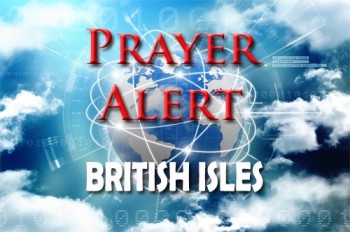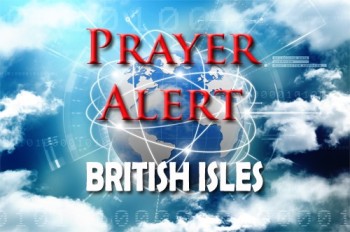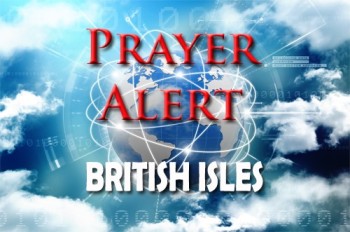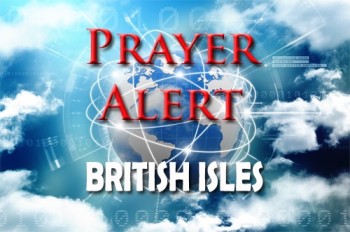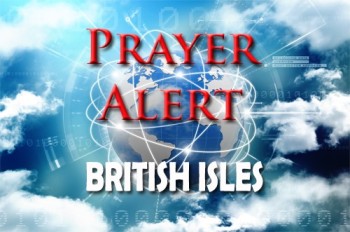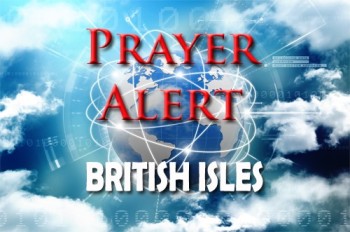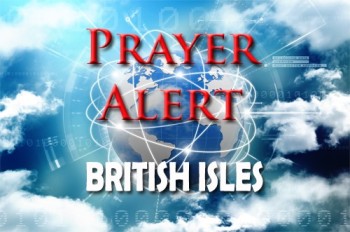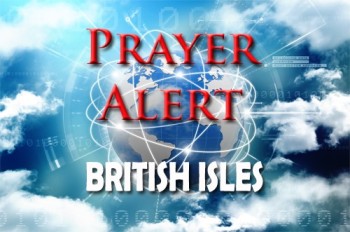Displaying items by tag: United Kingdom
Miner’s joy touches lives after encounter with Jesus
Nearly fifty years ago, Yorkshire coal miner Russ Gill’s life was transformed after a desperate prayer for his daughter’s healing led him to Christ. When seven-year-old Jayne was critically ill with kidney failure, Russ cried out to God, promising to become a Christian if she recovered. After her healing, the family attended church, and Russ soon gave his life to Christ. His faith deepened, leading him and his wife, Jean, to Bible College and a lifetime of ministry. Russ boldly shared his testimony in an evangelistic paper, sparking seeds of faith in his mining colleagues. One colleague, initially dismissive, later wrote to him, recounting a powerful encounter with God which brought him to his knees and into church. Despite challenges, including Jayne’s later passing, the family’s legacy of faith endures. Their son now pastors a vibrant London church, and granddaughter Jessica is studying at Bible college. Russ’s joy-filled witness continues to inspire, as he declares: ‘My God is a living God, Jesus - the same yesterday, today and for ever!’
Royals lead VE Day 80th anniversary celebrations
Britain commemorated the 80th anniversary of Victory in Europe (VE) Day with grand events led by the Royal Family. Crowds lined the Mall in London to witness an RAF flypast, echoing King George VI’s historic 1945 balcony appearance. The King and Queen, joined by senior royals and veterans, paid tribute to those who fought for freedom. Prince George, 11, attended his first VE Day tea party with veterans, showing keen interest in their stories. Across the UK, tea parties and street celebrations honoured the sacrifices of wartime generations. The Bengali Association hosted a vibrant event in London’s Docklands, reflecting the vital contributions of Commonwealth soldiers. Veterans shared memories of wartime bravery, from the D-Day landings to service in Churchill’s secret army. Keir Starmer underscored the nation's enduring gratitude. These commemorations, blending solemn remembrance and joyful celebration, highlighted the resilience and unity forged in World War 2 - a legacy which continues to shape Britain’s national identity and inspire future generations.
Trump set to announce UK - USA trade deal
Donald Trump is poised to announce a significant new trade agreement between the USA and the United Kingdom, marking a key step forward in post-Brexit trade relations. A ‘heads of terms agreement’ - essentially a preliminary framework - has been reached, laying the groundwork for a full trade deal. The announcement, expected from the Oval Office, follows weeks of high-level discussions amid global trade tensions. While the deal’s full details are pending, it is anticipated to address tariff reductions, particularly on UK steel and car exports, sectors hit hard by US tariffs. The British pound rose 0.4% against the US dollar following reports of the agreement. The deal comes as the USA also continues trade negotiations with other major economies, including China, South Korea, and Japan. UK officials have stressed the importance of balancing strong transatlantic ties with ongoing EU relations. The agreement is seen as a boost for UK industry and a strategic move to strengthen bilateral economic partnerships in an uncertain global climate. See also
Israeli embassy in London was target of suspected terror plot
Five Iranian men have been arrested in the UK on suspicion of plotting a terrorist attack, with the Israeli embassy in London understood to have been the target. Although police have not officially confirmed the embassy as the focus, multiple sources, including the BBC, report this as accurate. The suspects, aged between 24 and 46, were arrested in Swindon, west London, Stockport, Rochdale, and Manchester. Four remain in custody under the Terrorism Act; one has been released on bail. Counter-terrorism officers have searched several properties across England, and the investigation is described as fast-moving and sensitive. Iran has denied involvement but offered cooperation. Officials warn that Iranian-backed activities in the UK are often underestimated, with influence spread via religious institutes, media, and charities aligned with Tehran’s aims. UK authorities have praised the swift response of hundreds of officers involved, highlighting the seriousness of this threat. Citizens are urged to remain vigilant as investigations continue, with further updates expected as operational security allows.
Labour mutiny looming over new wave of benefits cuts
Labour MPs are warning of a brewing rebellion over government plans to deepen cuts to the welfare budget this autumn. Keir Starmer and Rachel Reeves face growing dissent after announcing in March a £5 billion reduction in benefits, with additional cuts reportedly under consideration. The proposals, which include tightening eligibility for personal independence payments (PIP) and cuts to universal credit, have sparked concerns across the party. Backbenchers and activists report rising public anger, especially following poor results in local elections and the Runcorn by-election. Critics warn that further cuts could drive more people into poverty, particularly affecting disabled individuals and communities already struggling with high rates of benefit dependence. Two Labour MPs have vowed to oppose the reforms, emphasising the party’s responsibility to protect society’s most vulnerable. Disability advocates, arguing that the cuts prioritise financial savings over people’s wellbeing, are urging the Government to reconsider. Ministers, however, insist reforms are necessary to sustain the welfare system for the future.
Cyber centre: ‘beware phony IT calls’ after retailer hacks
The National Cyber Security Centre (NCSC) has issued a warning following recent cyber attacks targeting major retailers including Marks & Spencer, Co-op, and Harrods. Criminal hackers have reportedly impersonated IT help desks to infiltrate company systems, a tactic known as social engineering. The NCSC urges organisations to review their password reset procedures and authentication processes, especially for senior staff with high-level access. Cybersecurity experts advise using multi-layered verification methods, including codewords, to prevent breaches. Although an anonymous group claiming responsibility, calling themselves DragonForce, denies links to the notorious Scattered Spider hacking collective, the methods used are strikingly similar. These hackers have previously carried out high-profile attacks, including on Las Vegas casinos. The NCSC emphasises vigilance against risky logins and unusual account activity. Law enforcement is investigating, with ongoing efforts to confirm links between recent attacks. The Co-op has admitted customer data was compromised, while M\&S’s breach is under investigation. Businesses are reminded to bolster security, as this wave of attacks highlights the evolving threat landscape in today’s digital world.
Church of Scotland to take neutral stance on Scottish assisted dying bill
The Church of Scotland is set to become the first major UK denomination to adopt a neutral stance on assisted dying, marking a significant shift from its historic opposition. This move comes ahead of a crucial Scottish Parliament vote on a private member’s bill seeking to legalise assisted dying for terminally ill individuals with mental capacity. While the bill has strict safeguards - requiring approval from two doctors - critics warn of potential future loosening of eligibility criteria. Scotland’s first minister, John Swinney, a Church of Scotland member, has voiced concerns and is expected to vote against the bill. Proponents argue the change reflects broad public support, with polls indicating that two-thirds of Scots back assisted dying. Humanist and faith-based campaigners alike see the church’s neutral stance as bridging divides between secular and religious perspectives. In contrast, other UK faith groups remain firmly opposed, citing fears of abuse and coercion. As debate intensifies, the Church’s position is seen as pivotal in shaping future discussions on compassionate end-of-life choices in Scotland.
Local elections likely to reflect immense voter disillusionment
The 1 May local elections in England are set to reflect deep public disillusionment with the traditional two-party system, according to a recent poll for Channel 4. Of those surveyed, 41% said ‘none of the above’ when asked who they trusted most to govern effectively: Nigel Farage scored 23%, and Keir Starmer only 19%. With over 1,600 council seats across 23 councils up for grabs, experts predict that a record number of councils may end up with no single party in control. Support is highly fragmented: Reform leads with 26%, followed closely by the Conservatives at 25%, Labour at 18%, the Liberal Democrats at 17%, Greens at 8%, and others at 6%. Reform’s surge reflects voter priorities such as immigration, while traditional parties are seen as out of touch. Voters are driven by national concerns - cost of living, healthcare, and governance - more than local issues. Both Labour and the Conservatives must urgently reconnect with a public tired of political stagnation and broken promises.
Climate change: government plans are ‘dangerously inadequate’
A scathing new report from the Climate Change Committee (CCC) warns that government efforts to protect people and infrastructure from the impacts of climate change are dangerously inadequate. The report found that of 46 key adaptation measures, none are rated ‘good’, and progress has been glacial or even regressive. Despite climate threats already affecting homes, farmland, railways, schools, and hospitals, adaptation remains a low priority. Forecasts show that by 2050, over half of England’s best farmland and critical infrastructure will be at flood risk, while heat-related deaths could exceed 10,000 annually. Businesses, farmers, and scientists are calling for urgent action, stressing that ignoring adaptation now will bring national security risks and economic costs. The Government may claim that it is prioritising climate resilience, but budget cuts - including to flood defences - cast doubt. Experts, pointing to successful models abroad, are urging clearer targets, better planning, and private sector engagement to prevent worsening climate disasters.
Britain set for a new trade partnership with EU
Britain and the EU are set to formalise a new strategic partnership to strengthen trade ties and present a united front against Donald Trump's global tariff agenda. A leaked draft declaration, dated 25 April, affirms a mutual commitment to ‘free and open trade’ and to maintaining global economic stability. The agreement will be signed at a UK-EU summit on 19 May, marking a key moment in post-Brexit relations. Meanwhile, the Government is engaged in separate negotiations with the USA, aiming to soften the impact of existing tariffs - currently 10% on UK goods and 20% on EU exports. US press secretary Karoline Leavitt said that talks are ‘moving in a very positive way’. Rachel Reeves met with US treasury secretary Scott Besent last week, emphasising that both UK-EU and UK-US trade relationships are vital. Despite Trump reportedly viewing the 10% UK tariff as a minimum, British officials remain optimistic about securing a mutually beneficial deal.

